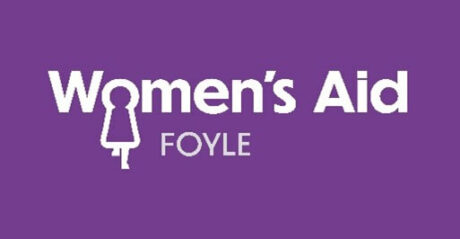The History of Women’s Aid Federations
The Northern Ireland Women’s Aid Federation came into being in 1977 with no statutory support. Three groups; Belfast, Derry and Coleraine were, at that time, affiliated to the National Women’s Aid Federation which covered England, Wales and Northern Ireland. They later made a policy decision to disaffiliate and set up a separate Federation, as did England and Wales. Scotland already had it’s own national Federation from 1975. However, links would be maintained through regular meetings of regional co-ordinators.
The national Women’s Aid Federation was established in 1975 with 100% of the funding coming from the Department of Health & Social Services in Britain. This was in response to the report of the Parliamentary Select Committee on Violence in Marriage (1975). The all party committee obtained evidence throughout Britain from Social Services, Police, voluntary agencies etc… Following the report, grant-aid was discretionary (in Northern Ireland the Health & social Services Boards have this responsibility), whilst the National Offices were to be funded by central government through the Department of Health & Social Services. Legislation following the Select Committee Report; the Homeless Persons Act 1977 did not come to Northern Ireland, but Domestic Proceedings Legislation did in 1980.
When the DHSS agreed to grant-aid the Northern Ireland Women’s Aid Federation in 1978, they did not agree to follow the English precedent of grant-aid at 100% but agreed to fund 83% of approved expenditure. A staff of one, the regional co-ordinator was approved. It was agreed that the first office and the co-ordinator be based in Derry for the first three years of operation. It was felt that the North West was in greater need of support for refuge development. The Belfast group, which was longer established and securely funded would, it was hoped, be capable of supporting an emerging service in the East and South. The grant-aid was meagre but as part of the budget had to be met from fundraising, a higher grant-aid was not sought. This was because no group felt that there were resources to spare from the work of establishing and maintaining refuges.
Fundraising is a constant worry and takes considerable energy as the cause of battered women has little popular appeal. Until very recently it was a taboo subject surrounded by ignorance and is still bedevilled by myth. Whilst the individual groups struggled to survive in order to provide refuge, the Federation was severely limited in the resources it was to provide. Its main function was to facilitate meetings at regional level and this is undoubtedly of benefit to the movement. Contact was maintained between the groups and with the Federations in England, Wales and Scotland. At the end of the three year period the decision to move to Belfast was implemented. A realistic increase in grant-aid for the Federation was sought and granted, funding for an administrative assistant for the co-ordinator was secured through the ACE Scheme and in 1984 when this was unable to continue, the DHSS agreed to fund the post. The last three years have been a period of growth and consolidation. The previous pattern of co-ordinating activity has been maintained. In addition, new groups have been established in Omagh, North Down, Craigavon & Newry. Contacts have been made in Antrim, Ballymena and Enniskillen. Training weekends have been held for paid and unpaid workers in which all affiliated groups have been involved. These are expected to continue and expand.

